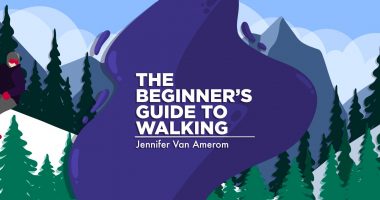Disability Costs Us More Than Our Physical Health

For the first 10 years after I was diagnosed with neuromyelitis optica (NMO), I chose to keep my condition private because I worried about how others might perceive me. But over the past two years of the pandemic, I’ve made the conscious decision to own my truth.
I’ve been reflecting on why I chose to be so private. Disability has cost me a lot — and in ways I’ve had to find the courage to acknowledge.
Loss of income
I will never walk again. That’s what I was told after my first major transverse myelitis (TM) attack. My company was supportive, but after several months, it was determined that I could no longer fulfill my responsibilities.
The loss of income was unexpected, as were the new expenses. Every weekday for six months, I paid for a taxi service to drive me to outpatient physiotherapy to recover from my TM attack. My legs were weak, so I couldn’t walk the block to the streetcar stop, and given my sporadic spasms, I didn’t trust in my ability to drive a car.
I also didn’t return to work for an entire year, so I lived off my line of credit and the financial support of my then fiancé, and now husband, Mike.
Loss of identity
I see myself as a working professional, but that changes during an attack. What I expected and planned for my life became uncertain after my diagnosis.
I am devastated by my autoimmune disease, and I still grieve the loss of my identity. I also watched my loved ones adjust and grieve the loss of the person they believed I’d become.
Loss of relationships
Mike and I were four months away from our destination wedding when my TM attack occurred. I wouldn’t have faulted him if he wanted to reconsider marrying me. Our future was uncertain, and at the time, it felt bleak. However, Mike stood by me. Love won in the end, and I married him six months after my second major attack and official diagnosis.
For many of my friends and family, I was the first person they knew who had been touched by a life-threatening illness, and some confessed that they were unsure how to react or behave around me. I was also unfamiliar with the outpouring of love and support, and it often felt like too much.
I wanted to educate my loved ones about NMO, but I couldn’t talk about my illness without getting upset. When I reflect on this time, I know that I shut out my friends and family.
My behavior cost me some friendships, because they didn’t know if they should come over or invite me out. I could have been a better friend, but I was doing my best to deal with my new diagnosis.
Loss of freedom
I am a fearless person, but I’m more careful now about the situations I put myself in. Before I do anything, I consider if I can do the activity alone, or if I anticipate needing help.
I can run errands like getting groceries, but I usually need help unloading them. My energy level is running low by the time I get home.
I love traveling, but I prefer to fly with my husband. My arms and hands always feel weaker because of the quick changes in air pressure. I sometimes struggle to roll my carry-on off the plane.
Loss of good mental health
I’ve experienced both losses and gains regarding my mental health, though these can be difficult to gauge, as mental health tends to be subjective and change frequently.
I still work hard to avoid becoming frustrated with my NMO. On the days I lose the battle with myself, I can become withdrawn, irritable, and depressed. It usually correlates with high pain levels or a lack of sleep. Staying positive with an incurable disease feels like an endless battle.
But I’ve also discovered how strong I really am. Things that might upset others are less important to me.
I was once poked 14 times by various nurses trying to place an IV line. I’ve always hated needles, but after that experience, I can calm myself enough to get through a few tries.
Lifelong patients may face multiple types of loss. Please share in the comments below how you cope with the various costs of disability.
Note: Neuromyelitis News is strictly a news and information website about the disease. It does not provide medical advice, diagnosis, or treatment. This content is not intended to be a substitute for professional medical advice, diagnosis, or treatment. Always seek the advice of your physician or other qualified health providers with any questions you may have regarding a medical condition. Never disregard professional medical advice or delay in seeking it because of something you have read on this website. The opinions expressed in this column are not those of Neuromyelitis News, or its parent company, Bionews, and are intended to spark discussion about issues pertaining to neuromyelitis optica spectrum disorder (NMOSD).







Comments